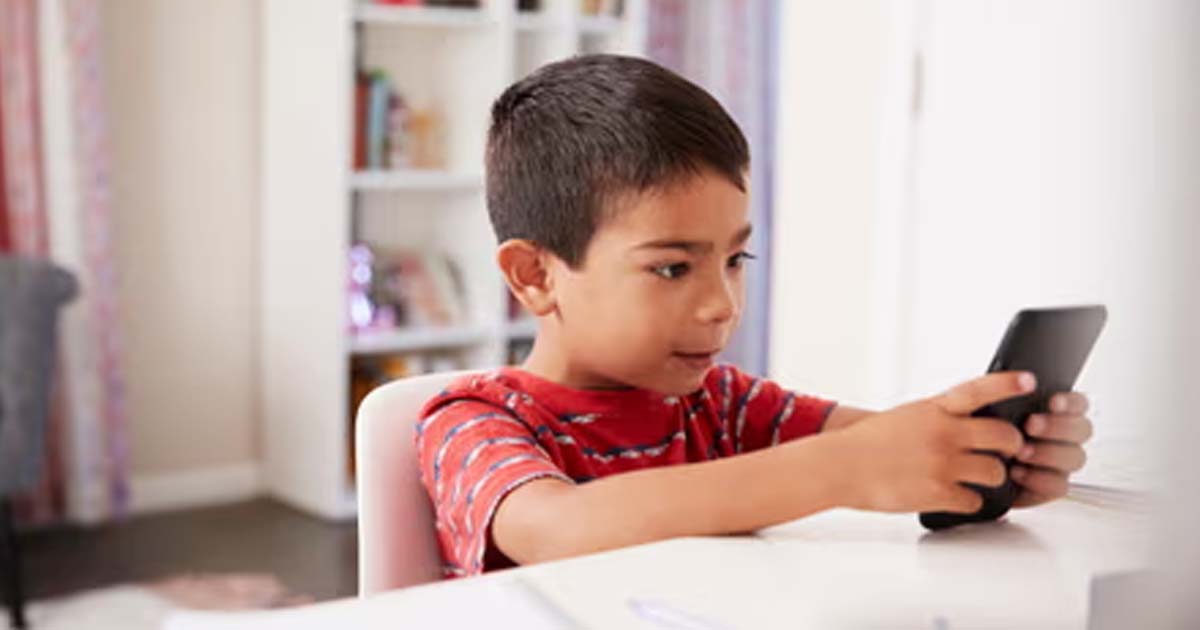55.90 percent of the population aged 5 to 15 in the country owns a mobile phone. This rate is 52.48 percent in rural areas and 63.22 percent in urban areas, the organization said. This information has emerged in a survey published by the Bangladesh Bureau of Statistics (BBS) recently. It is said that more than 83.6 million children in the country have their mobile phones. Where in the total population of 15 years and above, a little more than 82.4 million people have their mobile.
In this survey conducted in 2022, gender-wise analysis shows that 66.53 percent of boys and 45.53 percent of girls have mobile phones in that age group. Division-wise analysis shows that this rate is highest in Dhaka at 62.07 percent and lowest in Sylhet at 47.56 percent. Experts consider it very dangerous.
Salma Akhter, Professor of the Sociology Department of Dhaka University, said that mobile phones have increased in the hands of children mainly due to three reasons. The first is to have online classes during the Corona period. At this time the parents gave mobile phones to the children. As a result, at that time, children got the opportunity to use mobile phones themselves. Which was not changed later. Another is that parents are very busy now. As a result, they are not able to give time to the child. Then they give mobile phones to the children to keep them busy. Apart from this, many people give mobile phones under the pressure of children. Because that child is making excuses, other friends are using mobile. So why can't he? As a result, those parents are also allowing their children to use mobile phones.
The survey also looked at people who had used the Internet at least once in the 3 months preceding the census among the 5-year-old and above and 15-year-old and above population groups. In this, the rate of internet users among the population aged 15 years and above in the country is 36.92 percent. Which is 31.21 percent in rural areas and 48.86 percent in urban areas. Among the same age group, 46.58 percent of males and 27.77 percent of females are internet users. Division-wise analysis shows that this rate is highest in Dhaka 47.74 percent and lowest 21.35 percent in Rangpur. In other words, the rate of men using the Internet is much higher than that of women.
A review of survey data also shows that 30.69 percent of children are Internet users in the country, which is 25.73 percent in rural areas and 41.30 percent in urban areas. A gender-wise analysis shows that 38.04 percent of boys and 23.52 percent of girls are Internet users among children of the same age at the national level. Division-wise analysis shows that this rate is highest in Dhaka 40.42 percent and lowest 17.69 percent in Rangpur.
In this case, experts say that the use of mobile phones and the internet among children is increasing in the capital due to the mechanization of Dhaka and less time given to parents.
Professor Salma Akhter said in this regard, we are not able to monitor children's use of mobile phones and the internet. Because it is not possible for parents to always take care. Apart from this, the use of mobile phones is reducing their ability to communicate directly. As a result, children speak less now.
Both the physical and mental growth of children will be disrupted very badly due to excessive use of mobile phones.
Helal Uddin Ahmed, associate professor of the National Institute of Mental Health, said that excessive use of mobile phones can reduce the social skills of children, addiction to mobile phones, pressure on the eyes, loss of eyesight, bone loss, neck pain, and aggressive behavior. Even their personality formation has problems.
As a solution to these problems, Professor Salma Akhtar said, keeping the restriction on the use of mobile phones in schools and giving out healthy playtime for children. Apart from this, if they are involved in debates, games, painting, or cultural activities in school, their communication skills will also increase. Also, parents should give more time to children, and take them outside to play in open spaces.
On the other hand, 100% of children in the developed world own a mobile phone and stay up to date with technology. Therefore, Professor Helal Uddin Ahmed sees the increase in the use of mobile phones among the children of our country positively.
He said that children in developed countries use mobile phones but it is a positive use. There is no problem if the children of our country can also use positive. However, safe, rational, and efficient use of mobile phones must be ensured. Moderate use Teach him to use the mobile for a certain period. And most importantly parents should also moderate the use of mobiles. Because the children of the family who use more mobile phones are more addicted to mobile phones and internet.
ARS







